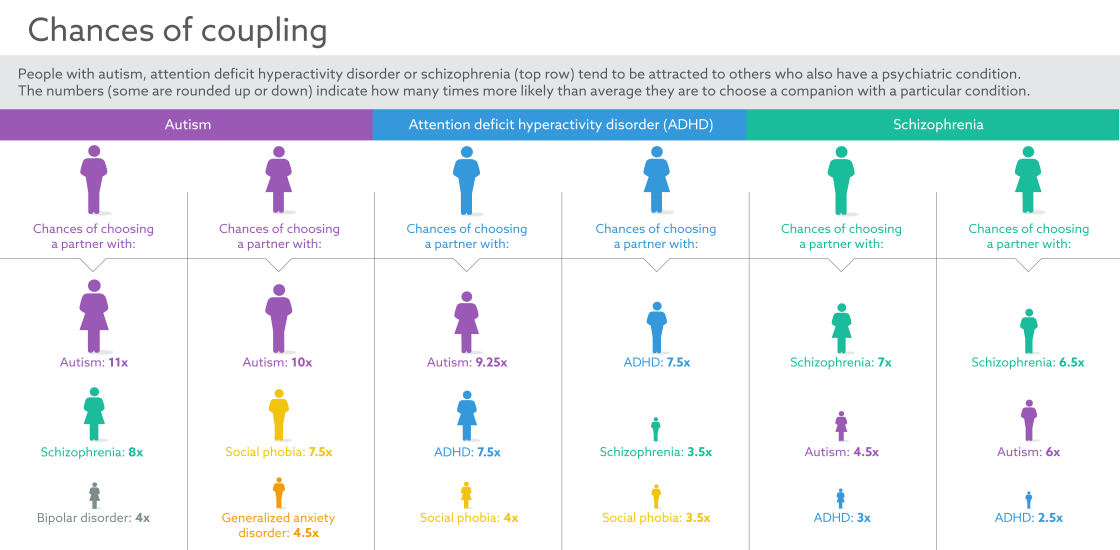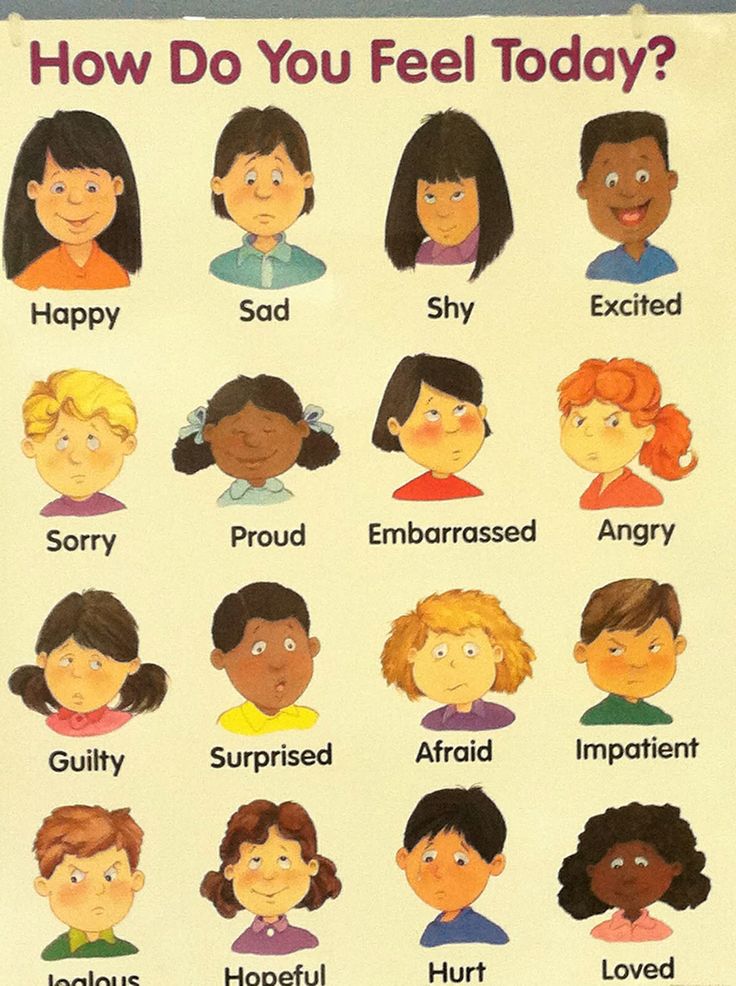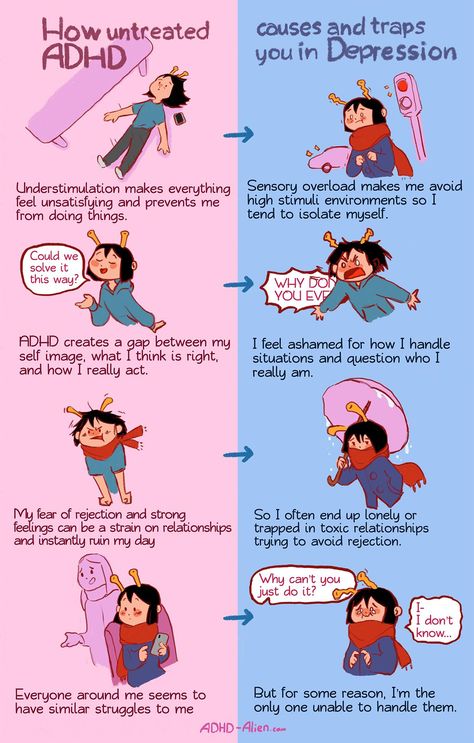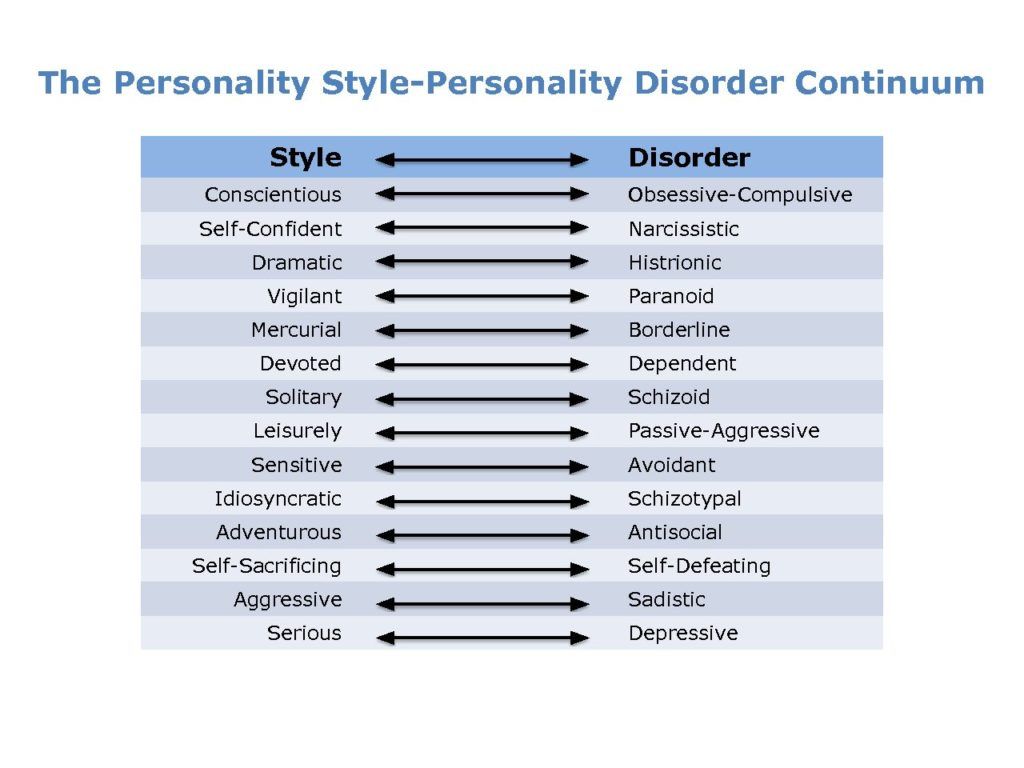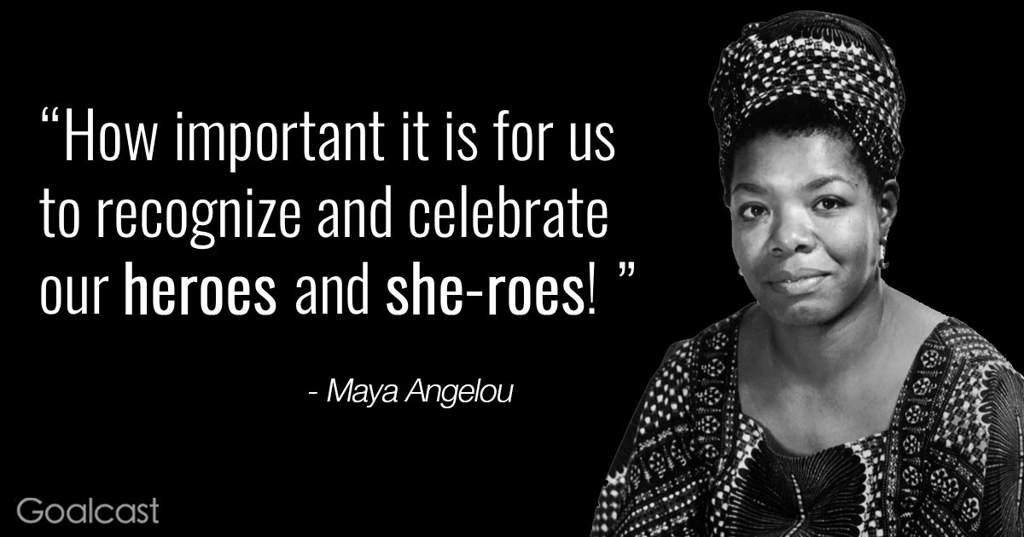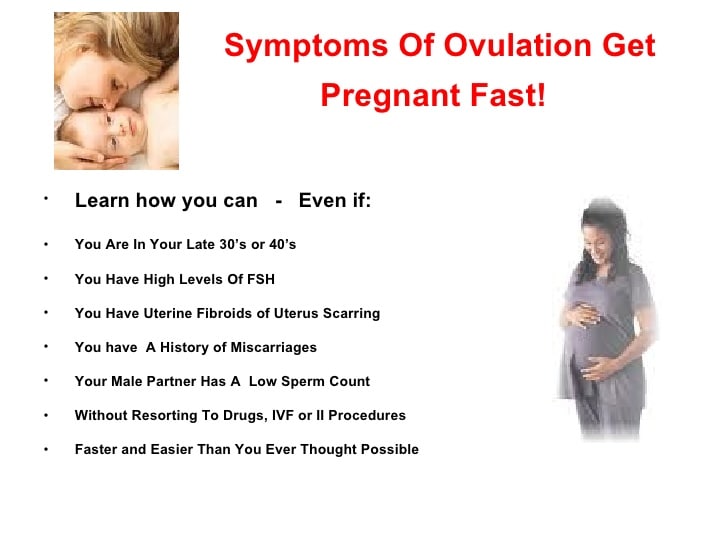Healthy mother daughter relationships
Everything You Need To Know
A mom and daughter relationship is precious. But, though the bond may appear unbeatable at first, it can eventually deteriorate to the extent where the sight of each other becomes uncomfortable. However, they eventually work out their conflicts and form a caring support network.
Navigating the ever-shifting mother-daughter relationship can be challenging. But, it is not all doom and gloom! Maintaining a healthy relationship is possible, even if you are going through a difficult time. All it requires is some serious reflection and behavior modification. Keep reading this article to learn what you can do to strengthen your bond with your mother or daughter (or both!). Scroll down!
In This Article
Why Do Mother-Daughter Relationships Matter?
Shutterstock
The importance of mother-daughter relationships came to light when a study revealed that the relationships between mothers and daughters are the strongest amongst any parent-offspring relationships (1).
In fact, it serves as the cornerstone of the future of any relationship a woman may have with those around her. The mother-daughter relationship holds the internal working model of attachment, which dictates a woman’s connection with others.
This effect also makes sense considering that mothers and daughters may have shared experiences, which scales up to form such a bias and cause mothers to favor their daughters (while fathers favor their sons) (2). Additionally, a mother’s mental health proves to be a vital marker in determining her daughter’s potential mental health conditions (3).
The relationship between mother and daughter is the most valuable connection a woman enjoys in her life. And given the role of maternal figures in translating valuable emotions and life skills like empathy, kindness, and affection, it can be the foundation of how society performs as a whole.
Now let us look at what a healthy relationship between mothers and daughters look like.
Traits Of A Healthy Mother-Daughter Relationship
Shutterstock
- They acknowledge each other as individuals and spend adequate time – neither too much nor too little. The mother-daughter duo recognizes and respects boundaries. They make reasonable commitments to each other and come through on them.
- They accept each other the way they are rather than forcing them to conform to a particular set of ideals.
- They can disagree without being disrespectful.
- Most of their conversations are open and honest, without guilt-tripping the other into doing or saying something they would not engage in on their own volition.
- Both contribute equally to the relationship, and none of the parties bear the upper hand.
- Mothers should allow their daughters to experience (and overcome) failures, while daughters should encourage mothers to widen their horizons and push their mental barriers.

In contrast to what we have seen in the previous section, here are the signs of a toxic mother-daughter relationship.
Related: 15 Most Important Things In A Relationship
Signs Of Dysfunctional Mother-Daughter Relationships
Shutterstock
- You are quick to pass judgment or be judged, and most of the criticism is harsh and counter-productive. Being dismissive of each other’s actions or emotions.
- The relationship is extremely taxing on one’s emotions, time, and attention.
- Off-hand, distasteful, or unwarranted jokes about hurtful things.
- If your relationship constantly involves drama, it is far from healthy.
- A toxic mother-daughter relationship makes you the source of happiness, which can come at the cost of your mental health.
- You feel helpless when it comes to setting boundaries or standing up for yourself.
- You find yourself constantly bickering with each other.

- Involve problematic behaviors such as gaslighting, manipulation, guilt-tripping, and minimizing.
Stylecraze Says
It has been found that daughters who have insecure bonds with their mothers during infancy are more likely to have psychological problems when they grow up (4).
Relationships between mothers and daughters can be broadly classified into the following categories.
Related: 21 Signs That Your Relationship Will Last Forever
Types Of Mother-Daughter Relationships
1. The BFF Duo
Shutterstock
Becoming good friends with your mother or daughter has more perks than earning a friend for life. Such a relationship rests on the pillars of trust, love, and mutual respect, where mothers and daughters freely express themselves and share emotional experiences. It instills the confidence that your mother or daughter will always be there for you for support, advice, or to lend an ear.
Related: 8 Signs To Know That You Are In A Complicated Relationship
2.
 The Detached Strangers
The Detached StrangersHere, the mother and daughter hardly know anything about each other’s lives because they choose not to get involved or do not care enough. Either way, disengagement makes the relationship strained and can lead to poor mental health.
3. The Enmeshed
While detached mother-daughter relationships sever the cord, enmeshed relationships compact them into one. It is one of the most toxic forms of relationships as it sets unrealistic expectations that result in devaluation.
The mother fails to respect boundaries and tries to seek validation through her daughter. On the other hand, the daughter feels pressured into living up to her mother’s expectations regardless of her desires.
Therefore, both of them lose their identity and individuality, leading to a relationship breakdown. This attachment style is common in abusive mother-daughter relationships where one is narcissistic, and the other is co-dependent.
4. The Control Freak
It may be hard to differentiate between enmeshed and controlling mother-daughter relationships. However, both are not the same. While a mother may push her daughter to perform better, a controlling one will shrink her passions or desires. Some may even try to pass off this behavior under the guise of being protective. It restricts the child, limits their potential, and takes away their independence.
However, both are not the same. While a mother may push her daughter to perform better, a controlling one will shrink her passions or desires. Some may even try to pass off this behavior under the guise of being protective. It restricts the child, limits their potential, and takes away their independence.
5. The Discard-Dismisser
We find one-sided rejection in this kind of difficult mother-daughter relationship. The dismissive action can be due to apathy or because the mother or daughter is impossibly hard to please. It leaves them longing for recognition and appreciation for the efforts they put into the relationship.
6. The Helicopter Tyrant
“Why? Because I said so”. If these words sound far too familiar, you have a mother who conceives herself as the ultimate authority. While they may have the best intentions at heart, the constant micromanaging, criticism, and interference make the mother and the daughter feel that any deviation from this pattern will result in failure. As a result, the mother-daughter relationship turns parasitic.
As a result, the mother-daughter relationship turns parasitic.
7. The Roles Reverse
Shutterstock
Children have to parent their kids with time. If the daughter acts like a responsible adult from an early age, while the mother behaves like a sibling or liability more than a parent, the mother-daughter relationship is dysfunctional. Such a relationship is common in daughters of mothers who are young, immigrant, alcoholic, or depressive.
Healthy mother-daughter relationships will give rise to confident, compassionate, caring, and empowered women. On the flipside, troubled relationships can set the stage for a range of emotional and mental issues.
Effects Of A Toxic Mother-Daughter Relationship
- Poor Self-Esteem: An abusive mother-daughter relationship can normalize bad behavior and set the bar too low for interpersonal relationships. Being treated unfairly will have both parties doubt themselves and negatively affect their self-esteem.

- Depression: Emotional distance or detachment can lead to mental health issues like depression.
- Commitment Issues: The mother-daughter relationship breakdown can make them wary of those around them. This dysfunctional bond leaves behind deep-rooted insecurities that may reflect into other relationships.
- Poor Conduct: Emotionally abusive relationships between mothers and daughters can breed unresolved resentment, jealousy, and hostility, leading to unreasonable and unpardonable actions.
Even if you have a thriving relationship with your mother or daughter, there’s always room to improve it. Here are some actionable tips on how to foster a healthy mother-daughter relationship.
How To Improve Mother-Daughter Relationships
- Be the first to extend the white flag rather than waiting for the other to make the first move. If your attempts are met with silence, learn to give up and sever the cords when necessary.

Since you cannot control how the other person reacts or behaves, healing must start with the self. So work on yourself first. - Encourage the willingness to change and create an environment where you contribute to each other’s personal growth.
- Set realistic expectations on the kind of relationship you wish to have. Be pragmatic about the same as behavioral changes may take a while to show effect.
- Learn each other’s love language and find ways to express care in a manner that influences the other.
- Try to incorporate transparent and open-ended conversations to put across your point without triggering defensiveness.
- If you find the situation escalating, declare that you wish to discuss this issue later. This will help you manage your emotions effectively.
- Foster an ecosystem of trust, especially during the tough adolescent phase, so that the relationships between mother and daughter stay honest throughout.

- Learn the art of active listening by echoing the other person’s concerns. Let them know that you are comprehending their intent and emotions.
- Gain an outsider’s perspective or put yourself in the other’s shoes to empathize with their condition and respect their feelings.
- If you cannot reconcile your differences, try to forgive the other person without condoning, minimizing, or pardoning the core issue.
- Maintain the subtle balance of staying close and connected without compromising on your individuality and beliefs.
- Establish healthy boundaries so that you can assert separateness in case of toxic mother-daughter relationships.
- Become comfortable with the idea that some issues may not resolve, and you may end up in a deadlock where you agree to disagree with each other.
- Rather than dredging up things from the past, prevent any further relationship breakdown by focusing on the present.

- Follow the 20-second rule. Put forward your perspective in 20 seconds or less during a conflict. Then, allow the other party to speak about their experience in the next 20 seconds. This technique enables you to stay on track of the current conflict than digressing.
- Stay respectful towards each other even during a conflict or disagreement. Avoid involving third parties for resolution or badmouthing the other.
- Set aside a fixed date, time, and schedule for routine mother-daughter hangout sessions.
Stylecraze Trivia
“The Joy Luck Club”, “Mamma Mia”, “Raising Helen”, “Dumplin”, “Brave”, and “Turning Red” are a few movies that you can watch to understand the different types of mom and daughter relationships.
Mother and daughter relationships are placed on such a high pedestal that we often forget how every relationship is different. Studies have shown that relationships between mothers and their daughters can be the strongest among other parent-offspring relationships. However, it is okay if the relationship doesn’t live up to ridiculously high standards. Let the innate scope for emotional connection bloom. Create a healthy environment for emotional expression and understanding. If you sense that the discord is severe, seek the help of therapists and counselors. A little bit of effort in the relationship will go a long way!
However, it is okay if the relationship doesn’t live up to ridiculously high standards. Let the innate scope for emotional connection bloom. Create a healthy environment for emotional expression and understanding. If you sense that the discord is severe, seek the help of therapists and counselors. A little bit of effort in the relationship will go a long way!
Frequently Asked Questions
How do you deal with a hurtful daughter?
There is a common phase in teenage life where children just do not get along with their parents and often say or do things that parents find hard to deal with. It could be helpful to go back to your teenage years and realize that all children want is to fit in, be heard, feel valued, and be appreciated. If your daughter is acting out, it might be because she wants someone to listen. So reach out and try to be there for her in whatever ways she needs you.
Why are mother-daughter relationships so hard?
Mother-daughter relationships can be hard sometimes because of the differences in perspective and ideologies. Growing up, most daughters are the spitting image of their mothers – not just in appearance but also in how they carry themselves. However, as daughters grow older, they may become more independent and view the world differently, which could stir some tension in the mother-daughter dynamics.
Growing up, most daughters are the spitting image of their mothers – not just in appearance but also in how they carry themselves. However, as daughters grow older, they may become more independent and view the world differently, which could stir some tension in the mother-daughter dynamics.
Key Takeaways
- A mother-daughter relationship is the strongest among other parent-offspring relationships, suggests a study.
- The mother’s mental health has a lot of bearing on their daughter’s condition. So, mothers must pay attention and act responsibly.
- Create an ecosystem of trust, particularly during the tough adolescent phase of the daughter, to make the relationship stay honest throughout.
Sources
Articles on StyleCraze are backed by verified information from peer-reviewed and academic research papers, reputed organizations, research institutions, and medical associations to ensure accuracy and relevance. Read our editorial policy to learn more.
- Mothers’ and Their Adult Daughters’ Perceptions of Their Relationship
https://journals.sagepub.com/doi/abs/10.1177/0192513×10384073 - Do Mothers Spend More on Daughters While Fathers Spend More on Sons?
https://myscp.onlinelibrary.wiley.com/doi/10.1002/jcpy.1004 - Female-Specific Intergenerational Transmission Patterns of the Human Corticolimbic Circuitry
https://www.jneurosci.org/content/36/4/1254 - Mother-daughter Relationship And Daughter’s Self Esteem
https://www.sciencedirect.com/science/article/pii/S1877042813016273?ref=pdf_download&fr=RR-2&rr=76427c98e86e2e8f
- Things i love about my mom
The following two tabs change content below.
- Reviewer
- Author
What is a Healthy Mother Daughter Relationship?
Healthy mother daughter relationships are defined by boundaries and qualities set forth by both the mother and daughter. Both have a responsibility to one another, and the relationship should not be one-sided. When correctly nurtured, the mother daughter relationship can be one of the best ones out there.
Both have a responsibility to one another, and the relationship should not be one-sided. When correctly nurtured, the mother daughter relationship can be one of the best ones out there.
What is a healthy mother daughter relationship? A healthy mother daughter relationship is one that demonstrates love, even in the face of conflict. It is one that establishes healthy boundaries and one in which neither party is self-seeking.
The recipe for a healthy mother daughter relationship begins when the daughter is just a little girl. It is important to maintain this relationship through adulthood.
In this article we are going to break the information up into six different topics as it relates to a healthy mother and daughter relationship:
- The six traits of a healthy mother daughter relationship.
- What is an enmeshed mother daughter relationship?
- How do I have a good mother daughter relationship?
- What are the qualities of a good mother?
- Is it common that mothers are jealous of their daughters?
- Why is a mother so important?
There are all types of mothers and daughters out there. Unfortunately, not every relationship is the best. Some mothers can become enmeshed in their daughters’ lives or jealous. We will point out key traits possessed by these types of mothers.
Unfortunately, not every relationship is the best. Some mothers can become enmeshed in their daughters’ lives or jealous. We will point out key traits possessed by these types of mothers.
On the upside, there are many great mother daughter relationships out there, and we will also point out the qualities of these, not expanding as far as this article on what compassion means in a relationship but in enough depth to understand. In healthy relationships, both mother and daughter hope for and foster personal growth in one another.
Check out some of our other related articles, such as how can I improve my father daughter relationship.
Article Topics
What is a Healthy Mother Daughter Relationship?Healthy mother daughter relationships revolve around six particular traits, which we will discuss in detail throughout this section.
Six traits of a healthy mother daughter relationship:- They spend the proper amount of time together
- They don’t engage in making each other feel guilty
- They don’t try to change each other into different versions of themselves
- They engage in positive conflict
- Both parties contribute to the relationship
- The mother allows the daughter to experience failure
Visit Talkspace
1.
 They spend the proper amount of time together
They spend the proper amount of time togetherAll mother daughter relationships are different, and that is okay. That being said, in a healthy relationship, the mother and daughter know the right amount of time to spend around one another to keep the relationship healthy. This will look different for each mother daughter pair.
Some mothers and daughters are best friends. They are capable of spending loads of time together without creating conflict. Others are not as close and need to limit the amount of time they spend together.
If being around your mom too much tends to strain the relationship or result in excessive arguing, you should probably dial back the amount of time you are spending together. (Continue reading for advice related specifically to a mother and daughter relationship, however, check out are article on fixing a failing relationship for all relationships in general.)
Mothers and daughters are individual people. Just like all relationships, this one has to be managed. If you are spending the right amount of time around each other, then both of you leave encounters together feeling positive and uplifted by one another.
If you are spending the right amount of time around each other, then both of you leave encounters together feeling positive and uplifted by one another.
2. They don’t engage in making each other feel guilty
Guilt is not a healthy tool to use in any relationship, including those between mothers and daughters. Mothers and daughters who are overly critical of one another tend to experience worse relationships. As with other relationships, mothers and daughters need to sense when it is time to forgive and move on from the past.
Continuously bringing up topics about which the other party feels guilty will only strain the relationship. No one can be perfect, and no one wants to spend time around people who make them feel guilty. Make the most of your relationship by moving past old hurts and eliminating “guilt speech” from your mother daughter relationship.
3. They don’t try to change each other into different versions of themselves
A mother and a daughter in a healthy relationship do not seek to change one another. They accept each other for the people they are. If a mother wishes her daughter was more like her, she needs to let this go.
They accept each other for the people they are. If a mother wishes her daughter was more like her, she needs to let this go.
Likewise, if a daughter seeks to change her mother into a more status quo figure, this is not healthy either. Appreciate one another for who you truly are.
In any positive relationship, people have to choose to ignore faults and accentuate the positive sometimes. If your mother or daughter is not the person you think they should be, try honing in on the features your most appreciate or respect about them. Focus on what makes the relationship good, not bad.
4. They engage in positive conflict
Conflict is natural in a mother daughter relationship. It is important that both the mother and daughter know how to handle this conflict. Sweeping it under the rug will only make things worse down the road.
This allows for emotional build-up of anger. One day, the dam will break and all of the old conflict will present itself. Engage in conflict head-on, but do it in a positive way.
Never speak to each other in a demeaning or disrespectful way. Present both sides of the argument, and take time to listen to the other person. Check out this article for more tips on how to handle arguments in a relationship
Never engage in name-calling. If you cannot reach an agreement on an issue, sometimes it is best just to recognize that you have opposing viewpoints, and love each other anyway.
5. Both parties contribute to the relationship
Mother daughter relationships should not be one-sided. Neither party should have to do all the work or make all the contributions to the relationship.
Mothers should not have to fully support their grown daughters, and neither should a daughter have to be responsible for her mother. Both mother and daughter should bring positive features to the relationship.
6. The mother allows the daughter to experience failure
Everyone needs help at times. It is important that both mother and daughter are there for each other to lean on when times are hard. This goes both ways. If one of you is having a hard time right now, it may be that you can support the other when she is struggling down the road.
This goes both ways. If one of you is having a hard time right now, it may be that you can support the other when she is struggling down the road.
If a mother always comes to the rescue for her daughter, the relationship will never be healthy. Wise mothers know that they have to let their daughters experience failure sometimes, so that they can grow and learn. This is a balancing act, but in a healthy relationship, the mother does not always intervene when the daughter is struggling.
Visit online Therapy.com
What Is An Enmeshed Mother Daughter Relationship?
In an enmeshed relationship, the roles of mother and daughter become too intertwined. This is when the mother begins to live vicariously through her daughter.
Enmeshment affects the mother and daughter, both in negative ways.
- What enmeshment looks like from the mother’s standpoint
- What enmeshment looks like from the daughter’s standpoint
An enmeshed mother can best be described as one who does not adhere to boundaries in her relationship with her daughter. She depends on her daughter for validation, entertainment, and companionship.
She depends on her daughter for validation, entertainment, and companionship.
This is not the role her daughter is supposed to serve. The enmeshed mother may struggle with her own identity, and this is what propagates the problem. In the case of extreme validation the mother may inadvertently emotionally abuse the daughter, wavering in between loving and jealous. If this has been the case there are great narcissistic recovery programs available to help the victim learn to set boundaries, establish resilience and live their own lives independently.
Enmeshed mothers tend to become over-involved in their daughter’s lives. The enmeshed mother will want to become friends with her daughter’s friends. She will not want to allow her daughter time to explore her own identity.
This type of mother is basically living her life through her daughter. She wants to be so involved, because she wants to absorb aspects of her daughter’s identity.
Daughters in enmeshed relationships often become resentful toward their mothers. They may not mature as they should, because the relationship boundaries have been so blurry, and they have essentially been bound to their mothers’ sides.
They may not mature as they should, because the relationship boundaries have been so blurry, and they have essentially been bound to their mothers’ sides.
Typically the mother is drawing something from the enmeshed relationship, but the daughter is not.
Independence is not fostered in these relationships, and a daughter may have trouble assuming her own identity. She may have spent lots of time trying to be the person her mother thinks she is or wants her to be.
How Do I Have a Good Mother Daughter Relationship?
There is a basic recipe for cultivating a good mother daughter relationship, as outlined in the list down below.
Aspects of having a good mother daughter relationship:
- Foster trust
- Set appropriate boundaries
- Show respect
- Fight fair
Trust is essential to any good relationship, particularly those between mothers and daughters. Trust can often be a big issue during the daughter’s adolescence, but as daughters mature, they should work hard to gain their mother’s trust.
Trust can often be a big issue during the daughter’s adolescence, but as daughters mature, they should work hard to gain their mother’s trust.
Likewise, mothers should be transparent and trustworthy with their daughters. If you make commitments to one another, keep them!
Trust involves honesty. Both parties have to obligation to be honest with one another, even if the truth hurts! Even after daughters have grown up, they should be in the habit of telling their mothers the truth. In an open and trustworthy relationship, both mother and daughter can flourish and enjoy each other’s company.
To avoid enmeshment, boundaries must be set. When a daughter is still living at home, it is the mother’s responsibility to set boundaries for appropriate behavior, clothing, etc. The daughter should follow these boundaries and talk through any conflict they may present respectfully.
Boundaries are also necessary once a daughter leaves the nest. For instance, a newlywed daughter may need to set boundaries with her mother on how often she visits, or whether or not she calls before she arrives.
It is important that both mother and daughter are allowed to be their own entities, and setting boundaries provides for this.
Healthy mother daughter relationships take into consideration the way they speak to one another. It is important that both parties show respect, even when they disagree. Disrespectful words should not be used to belittle either mother or daughter.
There’s a workshop that facilitates relationships by teaching individuals to break old relationship patters and form new ways of communication and teamwork!
Mothers and daughters hold positions of vast importance in each other’s lives, and they should speak to each other as such. When conflict arises, if you want to maintain a good mother daughter relationship, you will pay close attention to how you handle it. Keep the channels of communication open. Do not shut down on one another.
Even when there is seemingly no solution to an argument, continue to tell each other about your love for one another and demonstrate that love to each other.
What Are The Qualities of a Good Mother?
There are several qualities that can help make up any good relationship, but there are eight specific qualities which make up a good mother.
Eight qualities of a good mother:
- Patience
- Strength
- Empathy
- Humility
- Understanding
- Forgiveness
- Faithfulness
- Love
We’ve all heard the phrase, “Patience is a virtue,” but very few people in the world demonstrate as much patience as a mother. From the baby years, all the way to adulthood, a mother has to deal with the most difficult aspects of having a child.
A good mother takes the trials of motherhood in stride and is patient with her daughter, realizing she is the anchor put in place to hold her daughter steady.
It takes a lot of strength to be a good mother.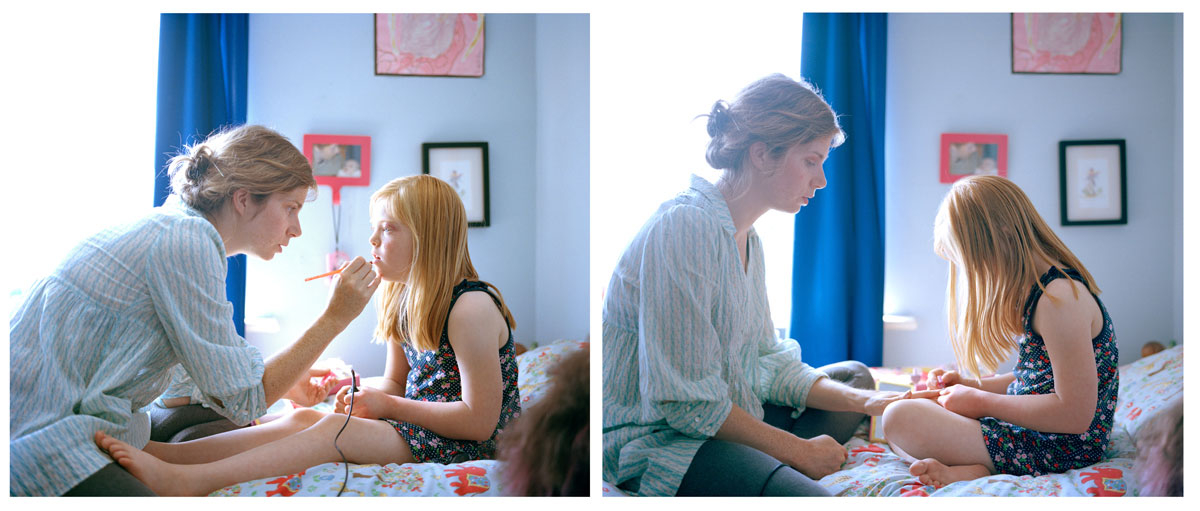 Some mothers have to raise their children on their own. Some go through sickness or other unforeseen circumstances, yet they have to stay the course when it comes to raising their children.
Some mothers have to raise their children on their own. Some go through sickness or other unforeseen circumstances, yet they have to stay the course when it comes to raising their children.
A good mother prioritizes her children above herself, and she is strong for them, even in the midst of difficult circumstances.
Good mothers can empathize with their children. It brings to mind the picture of a mother counseling a grown daughter who may be having relationship problems.
The mother’s heart hurts for her daughter, and she is able to put herself in her daughter’s shoes. Empathy is part of the reason mothers are known for giving the best advice.
Good mothers stay humble and model this attribute for their children. An arrogant or self-absorbed mother can make it difficult for a daughter to find her own place in the world.
A humble mother provides an example of maturity for her daughter and teaches her that sometimes it is appropriate to serve others.
Understanding mothers are able to offer support to their children, even when they disagree with their actions. Understanding mothers realize that everyone makes mistakes, and they do not blow the mistakes of their children out of proportion or humiliate them.
Good mothers readily extend forgiveness to their children. They do not hold grudges. Once an action has past, it is over. The good mother does not repeatedly bring up a mistake in order to guilt her children.
She continues to demonstrate her love, despite their actions. From this, children learn to readily forgive others and walk through life with an even temper.
Faithfulness is right up there at the top of the recipe for what makes a good mother. Good mothers are faithful to be there for their children when they are needed.
Even adult daughters know they can depend on a mother who has been faithful to be there for them. Faithfulness means showing up time and again, even when you don’t feel like it.
That is why mothers across the country can be found cheering at sporting events year after year for the special people they helped create.
Love seems like an obvious quality of a good mother, but it is not always easy to love. Consider the mother whose child has turned her back on her. Likely, that mother still loves her child and hopes for reconciliation one day.
A good mother loves her child from the day he or she is born until the end of her life.
Now we’ll address a topic that often comes up either as a cause or simply a perception regarding mother and daughter relationships: Jealousy.
Doing Life With Your Adult Children
Check Price on Amazon
Is it Common that Mothers are Jealous of Their Daughters?
Of course, not all mothers are jealous of their daughters, but unfortunately some are. This can be onset by a number of factors but also can be overcome through therapy and an improvement in the relationship. What’s important is that the jealousy is recognized and gently and compassionately handled.
What’s important is that the jealousy is recognized and gently and compassionately handled.
Here are four traits of jealousy within a mother and daughter relationship:
- They are competitive
- They are uninterested in their daughter’s lives
- They become enmeshed
- They humiliate or disrespect their daughters
It does not seem natural for a mother to be competitive with her daughter, but some are. Some mothers feel the need to validate themselves by upstaging their daughters.
This may mean they struggle to look younger, gain the attention of younger men, or become popular with their daughter’s friends. Self-questioning fuels this dysfunctional way of living.
Jealous mothers will not seem interested when their daughters begin to tell them about their dreams and successes. If your mother seems disengaged when you begin to talk, it may be that she is jealous of the person you have become. She may be disregarding your success and dwelling on her own perceived shortcomings.
Jealous mothers often become enmeshed with their daughters in an attempt to “live through them”. Jealous mothers may feel they were never permitted to live out their own lives fully because motherhood got in the way.
They may even revert to acting childish or attempting to dress and carry themselves like a much younger woman.
Some mothers attempt to build themselves up by putting their daughters down. They may humiliate or disrespect their daughters in public in an attempt to make themselves look better. These types of mothers are often very critical, and it is hard to have a healthy relationship with them.
With that said on jealousy, let’s get back to something that has to be revisited as we discuss the topic of mother and daughter relationships: the importance of a mother!
Why a Mother Is So Important
It is very true that no one can replace a mother. In fact, our lives would not be the same without them.
Here are some of the reasons mothers are so important to us:
- They provide emotional support
- They help us heal
- They sacrifice for their children
- They model how to be a functional adult
Mothers are often the backbone of the family. They provide for and foster emotional growth in their children. Even as adults, many of us rely on the support of our mother. She is our first call when we are feeling low.
They provide for and foster emotional growth in their children. Even as adults, many of us rely on the support of our mother. She is our first call when we are feeling low.
Think of little children when their feelings have been hurt. Who do they most often run to? Their mother!
Mothers clean and doctor our physical wounds when we are children, and they also help to heal our emotional and mental wounds as adults. Many a mother has walked her daughter through a rough spot in the wake of a bad break-up. Mothers are there to heal hearts as well as boo-boos.
There is not a more sacrificial being than a mother. Mothers work hard, whether it is in the home or outside the home or both. They are responsible for getting their children from infancy to adulthood, and they take this job seriously.
Mothers never stop sacrificing so that their children can have better lives.
Mothers are the ultimate role model. They shape who we become as women. Little girls watch and seek to emulate their mothers from a young age. This is a huge burden to bear! Mothers are responsible for the women their daughters become!
Little girls watch and seek to emulate their mothers from a young age. This is a huge burden to bear! Mothers are responsible for the women their daughters become!
Of course mothers are important. There is no one quite like them. Relationships between mothers and daughters can all look a little different. Those between sons and moms and what they do are different too! It is important to engage in a relationship built on trust, love, and respect. When this happens, mothers and daughters can truly become best friends.
When the relationship between mother and daughter is like madness
Special relationship
Someone idealizes his mother, and someone admits that he hates her and cannot find a common language with her. Why is this such a special relationship, why do they hurt us so much and cause such different reactions?
A mother is not just an important character in a child's life. According to psychoanalysis, almost the entire human psyche is formed in the early relationship with the mother. They are not comparable to any others. nine0005
They are not comparable to any others. nine0005
The mother for the child, according to psychoanalyst Donald Winnicott, is actually the environment in which it is formed. And when relationships do not develop in the way that would be useful for this child, his development is distorted.
In practice, the relationship with the mother determines everything in a person's life. This places a great responsibility on a woman, because a mother never becomes a person for her adult child with whom he can build equal trusting relationships. The mother remains an incomparable figure in his life with nothing and no one. nine0005
What does a healthy relationship between mother and adult daughter look like?
This is a relationship in which adult women can communicate and negotiate with each other, live a separate life - each of her own. They can be angry with each other and disagree, dissatisfied with something, but at the same time aggression does not destroy love and respect, and no one takes away their children and grandchildren from anyone.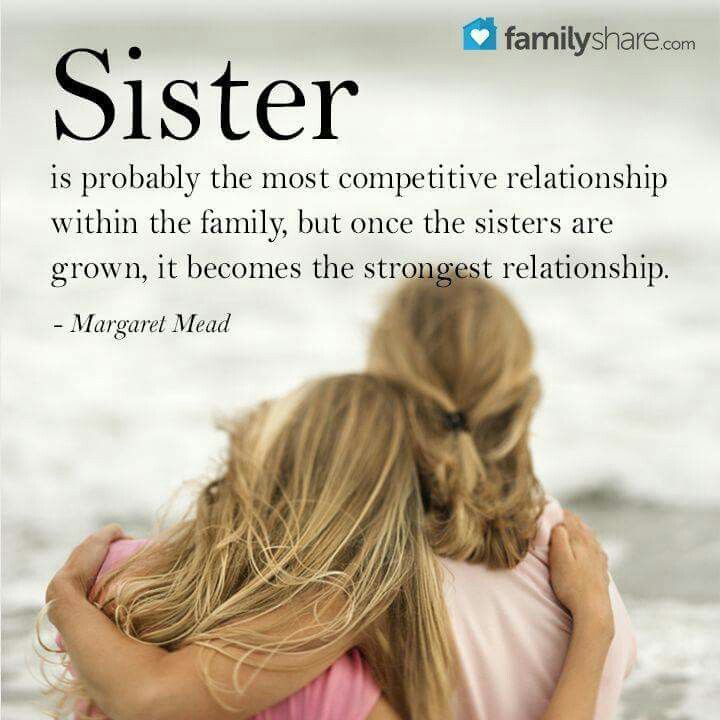
But the daughter-mother relationship is the most complex of the four possible combinations (father-son, father-daughter, mother-son, and mother-daughter). The fact is that the mother for the daughter is the primary object of affection. But then, at the age of 3–5 years, she needs to transfer her libidinal feelings to her father, and she begins to fantasize: “When I grow up, I will marry my father.” nine0005
This is the same oedipal complex that Freud discovered, and it is strange that no one before him did this, because the attraction of the child to the parent of the opposite sex was noticeable at all times.
And it is very difficult for a girl to go through this obligatory stage of development. After all, when you start to love dad, mom becomes a rival, and both of you somehow need to share dad's love. It is very difficult for a girl to compete with her mother, who is still loved and important to her. And the mother, in turn, is often jealous of her husband for her daughter.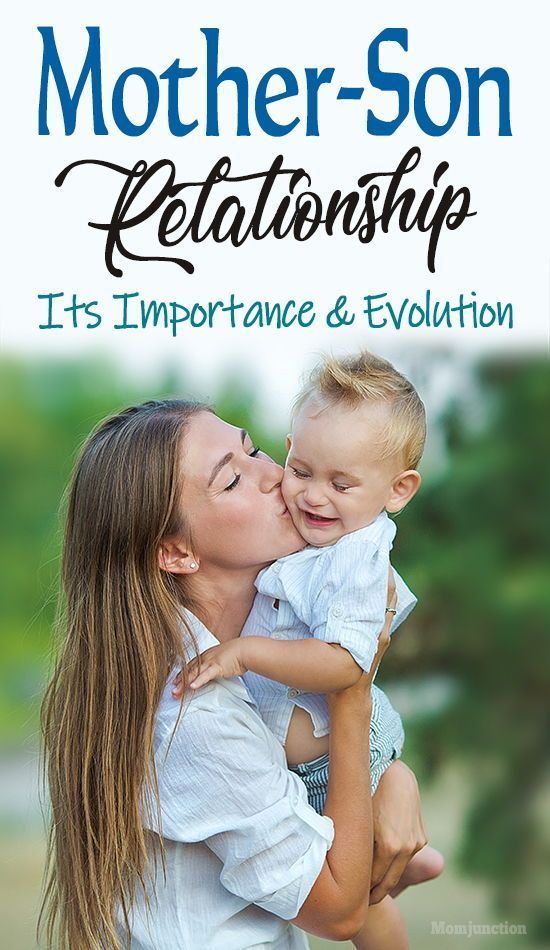 nine0005
nine0005
But this is only one line. There is also a second one. For a little girl, her mother is an object of affection, but then she needs to identify with her mother in order to grow and become a woman.
There is some contradiction here: the girl has to simultaneously love her mother, fight her for her father's attention and identify with her. And here a new difficulty arises. The fact is that mother and daughter are very similar, and it is very easy for them to identify with each other. It is easy for a girl to mix her own and her mother's, and it is easy for a mother to see her continuation in her daughter. nine0005
Many women really have a hard time distinguishing themselves from their daughters. It's like psychosis. If you ask them directly, they will object and say that they distinguish everything perfectly and do everything for the good of their daughters. But at some deep level, this boundary is blurred.
Is taking care of your daughter also taking care of yourself?
Through her daughter, the mother wants to realize what she has not realized in life. Or something that she herself loves very much. She sincerely believes that her daughter should love what she loves, that she will like to do what she herself does. Moreover, the mother simply does not distinguish between her own and her needs, desires, feelings. nine0005
Or something that she herself loves very much. She sincerely believes that her daughter should love what she loves, that she will like to do what she herself does. Moreover, the mother simply does not distinguish between her own and her needs, desires, feelings. nine0005
Do you know jokes like “put on a hat, I'm cold”? She really feels for her daughter. I remember an interview with artist Yuri Kuklachev, who was asked: “How did you raise your children?” He says: “And this is the same as with cats.
No tricks can be taught to a cat. I can only notice what she is inclined to, what she likes. One is jumping, the other is playing with a ball. And I develop this tendency. Likewise with children. I just looked at what they are, what they naturally come out with. And then I developed them in this direction. nine0005
This is the sensible approach when a child is viewed as a separate being with its own personality traits.
And how many mothers do we know who seem to take care: they take their children to circles, exhibitions, concerts of classical music, because, according to their deep feeling, this is exactly what the child needs. And then they also blackmail them with phrases like: “I put my whole life on you,” which cause an enormous feeling of guilt in adult children. Again, this looks like psychosis. nine0005
And then they also blackmail them with phrases like: “I put my whole life on you,” which cause an enormous feeling of guilt in adult children. Again, this looks like psychosis. nine0005
In essence, psychosis is the inability to distinguish between what is happening inside you and what is outside. The mother is outside the daughter. And the daughter is outside of her. But when a mother believes that her daughter likes what she likes, she begins to lose this boundary between the inner and outer world. And the same thing happens to my daughter.
They are the same sex, they are really very similar. This is where the theme of shared insanity comes in, a kind of mutual psychosis that only extends to their relationship. If you do not observe them together, you may not notice any violations at all. Their interaction with other people will be quite normal. Although some distortions are possible. For example, this daughter with women of the maternal type - with bosses, female teachers. nine0005
nine0005
What is the cause of this psychosis?
Here it is necessary to recall the figure of the father. One of his functions in the family is to stand between mother and daughter at some point. This is how a triangle appears, in which there is a relationship between the daughter and the mother, and the daughter with the father, and the mother with the father.
But very often a mother tries to make sure that her daughter's communication with her father goes through her. The triangle collapses.
I have met families where this model is reproduced for several generations: there are only mothers and daughters, and the fathers are removed, or they are divorced, or they never existed, or they are alcoholics and have no weight in the family. Who in this case will destroy their closeness and merging? Who will help them separate and look somewhere else but at each other and "mirror" their madness? nine0005
By the way, did you know that in almost all cases of Alzheimer's or some other type of dementia, mothers call their daughters "moms"? In fact, in such a symbiotic relationship, there is no distinction between who is related to whom. Everything merges.
Everything merges.
Should a daughter be "daddy's"?
Do you know what people say? In order for the child to be happy, the girl must be like her father, and the boy must be like her mother. And there is a saying that fathers always want sons, but love more than daughters. This folk wisdom fully corresponds to the psychic relations prepared by nature. I think that it is especially difficult for a girl who grows up as a "mother's daughter" to separate from her mother. nine0005
The girl grows up, enters childbearing age and finds herself, as it were, in the field of adult women, thereby pushing her mother into the field of old women. This is not necessarily happening at the moment, but the essence of the change is there. And many mothers, without realizing it, experience it very painfully. Which, by the way, is reflected in folk tales about an evil stepmother and a young stepdaughter.
Indeed, it is difficult to bear that a girl, a daughter, is flourishing, and you are getting old. A teenage daughter has her own tasks: she needs to separate from her parents. In theory, the libido that awakens in her after a latent period of 12–13 years should be turned from the family outward, to her peers. And the child during this period should leave the family. nine0005
A teenage daughter has her own tasks: she needs to separate from her parents. In theory, the libido that awakens in her after a latent period of 12–13 years should be turned from the family outward, to her peers. And the child during this period should leave the family. nine0005
If a girl's bond with her mother is very close, it is difficult for her to break free. And she remains a "home girl", which is perceived as a good sign: a calm, obedient child has grown up. In order to separate, to overcome attraction in such a situation of merger, the girl must have a lot of protest and aggression, which is perceived as rebellion and depravity.
It is impossible to realize everything, but if a mother understands these peculiarities and nuances of relationships, it will be easier for them. I was once asked such a radical question: “Is a daughter obliged to love her mother?” In fact, a daughter cannot help but love her mother. But in close relationships there is always love and aggression, and in the mother-daughter relationship of this love there is a sea and a sea of aggression. The only question is what will win - love or hate? nine0005
The only question is what will win - love or hate? nine0005
Always want to believe that love. We all know such families where everyone treats each other with respect, everyone sees in the other a person, an individual, and at the same time feels how dear and close he is.
Daughter and mother: separation is difficult, but necessary!
310 685
A man among people
To tell about her painful relationship with her mother, 40-year-old Katerina writes the book “Mom, don't read! Confessions of an "ungrateful" daughter. In it, she lists in detail her childhood and adult attempts to earn maternal love, each time unsuccessful. She does not write for her mother - this is how she tries to get rid of the pain, which "stretched out for many years and has not subsided so far" ...
Natalia is 36 years old and considers her mother her best friend. “We often call each other, go shopping together, and every weekend I come to her with my children. We are very close,” she shares. And after a pause, he admits that the visits are not entirely voluntary. It is worth missing at least one, and she feels guilty. As in her youth, when her mother reproached her for selfishness, constantly reminding her of what she had sacrificed in life while raising her “ungrateful daughter”... by forgiving her, nor freed from dependence and guilt. In other words, they never truly matured. Why is it so difficult? nine0005
We are very close,” she shares. And after a pause, he admits that the visits are not entirely voluntary. It is worth missing at least one, and she feels guilty. As in her youth, when her mother reproached her for selfishness, constantly reminding her of what she had sacrificed in life while raising her “ungrateful daughter”... by forgiving her, nor freed from dependence and guilt. In other words, they never truly matured. Why is it so difficult? nine0005
“The relationship between mother and daughter is unique,” says psychotherapist Ekaterina Mikhailova. “They always have guilt and forgiveness, affection and rebellion, incomparable sweetness and incomparable pain, the inevitable similarity and its furious denial, the first and main experience of our “together” - and the first attempt to still be separately...
Competition. Struggle. Fear. A piercing need for attention, for approval. Horror before the power of this need. Love, sometimes manifesting itself in murderous, suffocating forms. The first experience of submission to power, "superior enemy forces" - and the very first experience of one's power over another person. Jealousy. Unspoken grievances. Expressed grievances. And above all this is the uniqueness of these relations. The other one won't." nine0005
The first experience of submission to power, "superior enemy forces" - and the very first experience of one's power over another person. Jealousy. Unspoken grievances. Expressed grievances. And above all this is the uniqueness of these relations. The other one won't." nine0005
Merge in order to separate later
In early childhood, almost complete merging with the mother is necessary for the child in order to survive. “The sense of security that arises from such a symbiosis helps him grow, mature and gradually begin an independent life,” says psychoanalyst Elina Zimina. “But if there was no such closeness, the desire to merge with the mother, to feel her unconditional love, may remain the most important, the main one.”
That is why so many adults look at the world through their mother's eyes, act as she would have done, hope for her approval and appreciation. nine0005
For a girl, a mother is a perfect omnipotent being of the same sex as her. It is later, from about three to six years old, that she begins to compete with her for her father's love. It is easier for girls to distance themselves from their mother compared to boys, for whom the mother becomes the “object of love”. But if this does not happen, the merger can turn into dependence: they see only similarities in each other, but do not notice differences.
It is easier for girls to distance themselves from their mother compared to boys, for whom the mother becomes the “object of love”. But if this does not happen, the merger can turn into dependence: they see only similarities in each other, but do not notice differences.
An adult who continues to struggle with his parents most likely never separated from them
Staying in a close relationship with her mother, the girl stops growing up, because she does not feel like a separate person. And only by moving away, you can find differences: “how am I different from her?”, “What am I?”, “Who am I as a woman?”. By holding her daughter near her, the mother prevents her from finding answers to these questions.
“Gradual separation, separation from parents, creates within us the mental space necessary to feel our own characteristics and desires, including our femininity,” explains Elina Zimina. “It is the ability to distinguish between what belongs to me and what belongs to another. ” nine0005
” nine0005
You can compare yourself with someone who is on equal or almost equal positions with us. However, for a child, a mother is a creature devoid of flaws. To see a real woman in her, you have to overthrow her from an imaginary pedestal. It is enough to recall the intensity of passions between adolescents and parents to understand how painful this deidealization is.
“When a teenager sees real people in his parents, the degree of hostility usually decreases,” says the psychoanalyst. “And an adult who continues to fight with his parents most likely never separated from them.” nine0005
But the separation does not end there either, and a girl who becomes a woman, a mother, has to establish a new distance with her own mother every time.
The third is not superfluous
Contradictions and conflicts, overt or hidden, are always present in the relationship between mother and daughter. “A mother can painfully experience the loss of her daughter’s unconditional love when, in the oedipal phase of development, she transfers her love to her father,” explains Elina Zimina. - Unlike girls, a boy at this age continues to love his mother. Therefore, in the relationship of mothers with sons, there are fewer conflicts and more harmony. And in the relationship of mother and daughter, there can be more conflicting feelings: in addition to love, they contain jealousy, envy and rivalry. nine0005
- Unlike girls, a boy at this age continues to love his mother. Therefore, in the relationship of mothers with sons, there are fewer conflicts and more harmony. And in the relationship of mother and daughter, there can be more conflicting feelings: in addition to love, they contain jealousy, envy and rivalry. nine0005
Both poles of maternal love are equally dangerous for a daughter: her lack and excess
In this connection, the image of the little girl who was once the mother herself clearly shines through. This image brings her back to memories of her own childhood, her relationship with her own mother, the experience of love and pain.
Both poles of maternal love, its deficiency and excess, are equally dangerous for a daughter. But the relationship of mother and daughter is not a relationship of two, but always of three people. “The father separates them and tells his daughter: “I am your mother’s husband and lover,” explains Elina Zimina. “At the same time, he supports his daughter, admiring her femininity, and makes it clear that later she will meet a man who will give her the desired love.” nine0005
“At the same time, he supports his daughter, admiring her femininity, and makes it clear that later she will meet a man who will give her the desired love.” nine0005
The third person who helps mother and daughter separate from each other may not be only the father or the mother's partner. An idea, a passion, a job is something that can completely capture a woman’s thoughts so that for this time she forgets about the child, feels “separated” from him.
Of course, a psychotherapist can also play this role. “With one“ but ”, which is often not taken into account in dreams and plans,” Ekaterina Mikhailova insists. “Any third person is a temporary figure: having fulfilled his role, he must fade into the background, making room for the development of relations.” nine0005
Far and near
Where is the boundary between a good, trusting relationship and complete dependence on the wishes and moods of the mother? It is not always easy to find the answer to this question. Especially now, when a friendly relationship with the mother ("mother-girlfriend") is becoming the ideal of many women. But often they hide the lack of distance, the very “uncut umbilical cord”.
But often they hide the lack of distance, the very “uncut umbilical cord”.
Daily calls, requests for advice, intimate details - this is how it looks in real life. But constant conflicts, and even a gap between mother and daughter, do not mean that there is no emotional connection between them. Distance is also not an indicator. “A daughter can be extremely dependent on her mother, despite the fact that they are separated by thousands of kilometers, or live with her in the same house and be independent,” says Elina Zimina. nine0005
A woman's natural desire to become independent can be hindered by her mother's desire to keep her by her side, often unconsciously. “Sometimes she perceives the separation of the child as evidence that he no longer loves her and leaves her - perhaps this is due to her own experience of sudden separation,” Elina Zimina gives an example. - She may not be sure of her own femininity and be jealous of her daughter's beauty. Or consider himself entitled to manage her life, because he sees his continuation in it. A single woman can look for a “substitute” husband or her own mother in a child. nine0005
A single woman can look for a “substitute” husband or her own mother in a child. nine0005
If parents allow their children to be free, but are ready to support if necessary, then the separation will take place peacefully
In response, the daughter manifests anxiety - fear of losing her mother's love, self-doubt, fear of men ... Some mothers want to keep their daughter at any cost, others, on the contrary, they strive to “get rid of” it as quickly as possible. At the first teenage attempts to declare independence, they say: “well, you are completely free and independent, you can live as you want.” nine0005
But behind this lies rejection. “Adult children also need support,” says Elina Zimina. “And if parents allow them to be free, but are ready to support if necessary, then the separation is likely to pass peacefully and good relations will continue.”
The path to freedom
True independence comes when a woman critically evaluates her mother's attitudes, behaviors, and life scenarios. It is impossible to completely abandon them, because in this way she will be isolated from her own femininity. But to accept them entirely means that she, having remained a copy of her mother, will never become herself. nine0005
It is impossible to completely abandon them, because in this way she will be isolated from her own femininity. But to accept them entirely means that she, having remained a copy of her mother, will never become herself. nine0005
“Usually, those who manage to unilaterally “withdraw claims” and stop nourishing painful relationships with their hopes, grievances, or playing the role of an ideal mother or daughter, can usually move towards a seemingly desired, but still not advancing independence,” says Ekaterina Mikhailova . Too close relationship is mutual. Often it just seems that “mom won’t let go” - both are not ready to move into a new phase of the relationship, but the responsibility for this is usually assigned to the older one. nine0005
If we really want changes, we need to start with a few tough questions to ourselves, Ekaterina Mikhailova advises: “What am I hiding from myself, explaining all the problems of my life with pressure, influence, interference and the need to take care of one or the other? Maybe it's me who fills the emotional void with the game of fighting for independence?
Maybe the world behind me scares me so much that it's easier for me to stay in a strange mixture of duel, dance and embrace with that other woman? What do I hope for, continuing to sort things out, reconcile, quarrel, reproach - or pamper and please? Maybe, in the depths of my soul, I still believe that it will be possible to prove something, that “she” will agree, accept, approve . .. "
.. "
How do we know if we have really managed to become independent and have broken the mother's umbilical cord? This is so if we are no longer torn apart by conflicting feelings, no longer tormented by internal conflicts. If we ourselves regulate the degree of trust and distance in relations with the mother, without feeling guilty. We can objectively assess what we are similar and what are different from each other. And finally, if we feel that we are connected with the mother in certain bonds, but not tightly attached to her. nine0005
As adults, we begin to build relationships with mothers in a new way. However, with some of them, this is especially difficult to do. Psychologist Susan Cohen and journalist Edward Cohen list 10 common types.
- Narcissistic . She dreams of seeing in her daughter a pretty doll who would think only of her mother.
- Supervisory . She has a rule for every occasion. And every time she tells her daughter that she did not fulfill it.
 nine0150
nine0150 - Opinion dependent . He worries about what the neighbors will think - even when his daughter has long grown up and left the city.
- Seductive . Always dressed in fashion, too short, too tight. She flirts with any man she meets, including her daughter's friends.
- Asphyxiant . Helps even when the kids don't need it.
- Borderless . Takes the successes and failures of his child very close, too close to his heart...
- Critical . Reproaches everything that the daughter (not) does, as well as what she dreams about.
- Closing eyes . Thinks things aren't going so badly, even when things can't get any worse.
- Omniscient . She had long ago done everything that her daughter hoped to do someday, and much better than she did.
- Accusing . Always dissatisfied, but waiting for the children to put their lives in order to satisfy her desires and dreams.
Text: Anna Fateeva Photo credit: Getty Images
New on the site
How to protect personal boundaries: 7 tips from practical psychologists
What I know about dad: part 1.


